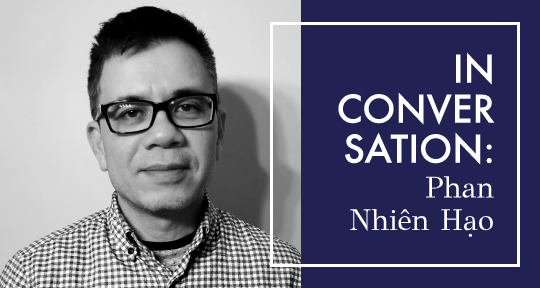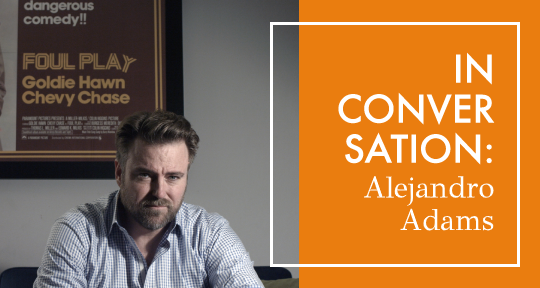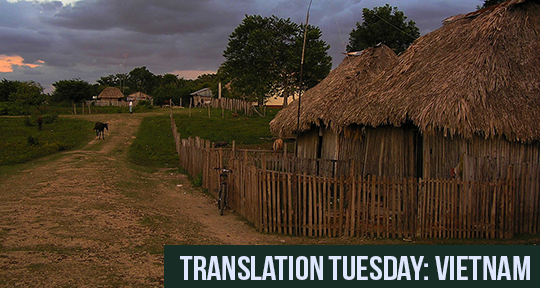In a poem titled “Wash Your Hands,” Phan Nhiên Hạo writes “Gentlemen, this is no trivial matter / another story about art for art’s sake, or art for life / this is the story about a cut the length of decades.” The poem, written in 2009, seems to disrupt time, speaking as much to our harrowing present as it does to Phan’s own complex past. Indeed, much of Phan Nhiên Hạo’s latest collection, Paper Bells, appears to confirm Diana Khoi Nguyen’s view that Phan is a poet “gifted with the ability to be present in multiple planes of existence.”
Meticulously translated from the Vietnamese by Hai-Dang Phan, Paper Bells was recently published by Brooklyn-based press, The Song Cave. As the world contended with the rampant spread of COVID-19 and millions of people were struggling to adjust to a frightening new reality, Phan Nhiên Hạo graciously agreed to correspond with me. We emailed about Paper Bells and balancing the lockdown with writing and family. And Phan shared his thoughts on censorship, writing in exile and the vital importance of personal narratives when it comes to (re)writing history.
—Sarah Timmer Harvey, March 2020
Sarah Timmer Harvey (STH): We find ourselves corresponding at a very strange and challenging time. You’re in Illinois, I’m in New York, and both of us are at home due to the coronavirus pandemic. I hope that you and your loved ones are well. How are you isolating and spending your time? Do you feel compelled and able to write?
Phan Nhiên Hạo (PNH): I work for a university library, and the university has been closed due to the coronavirus—yet, we are expected to work from home. Interestingly, we now have more meetings than ever before, but they are virtual meetings. I feel I am mentally well-equipped to be socially distant. Most poets are introverted people, I guess, and that helps a lot in this situation. I want to write, but I need time to absorb the current situation. The pandemic is so surreal, so absurd, so impactful to life at an unimaginable magnitude. It looks like I will stay home for a while, so hopefully, I will be able to write more eventually. READ MORE…













